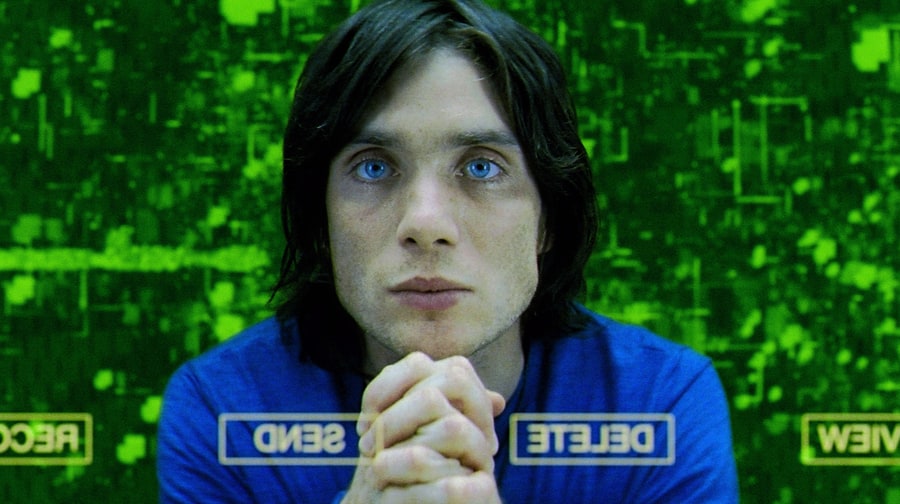
The world of Daniel Boyle, a twenty-one year old Mancunian, was changed forever after seeing Francis Ford Coppola’s rendition on the Vietnam War: “Apocalypse Now”. He knew what art could stand for and what it could do, but seeing this film proved to him that nothing could be as powerful as the majestic art of cinema.
He would become a filmmaker himself, but not just any filmmaker. He would one of the most prolific in the business; so prolific, in fact, that his native country asked him to direct the opening ceremony of 2012 London Summer Olympics – which he did with much acclaim.
There would be his signatures on screen – most notably his beloved Dutch angles – but he would never repeat himself. It would have a beautiful soundtrack but the genre would be different. One story might be a love story, another story might be told from the point of view of a child, and another would involve people running away from monsters. Some were quite intimate, sweet-natured, full of pulp, and one in particular would reflect upon a misanthropic generation.
Like Martin Scorsese, he was almost on the verge of priesthood. In some way, he considers his current employment to be similar: ”There’s something very theatrical about it. It’s basically the same job – poncing around, telling people what to think.” Even so, I don’t think the viewer feels this way watching his films.
None of his films feel like a lecture. We are free to think on our own. His cast of characters, despite their degeneracy, were never judged. You felt sympathy for them at times and sometimes you hated them. They might have socio-political undercurrents but they’re never heavy-handed. You can easily dismiss them if you prefer.
In this list we will take a look at his films, from worst to best. None of these films are bad; even some of the lower ranking ones have a devoted audience. The beautiful thing about Boyle is that you never know what you can expect. He might make a period piece or a trashy horror film; nothing is beneath or beyond him.
We read articles on Taste of Cinema because of our love for film. Here, we honor someone who loves film more than any of us, as proven by his ongoing life’s work.
12. A Life Less Ordinary (1997)
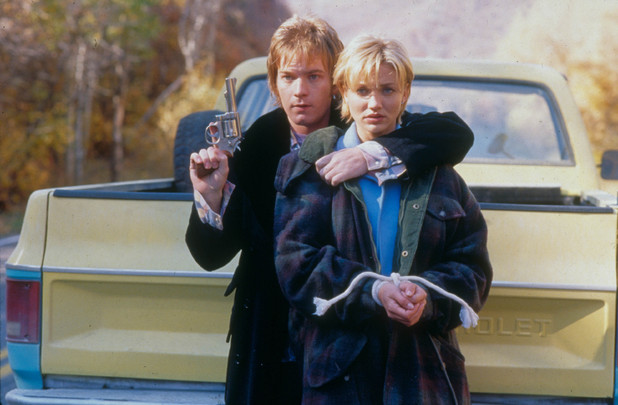
In the world of this film, there’s such a thing as an angel… but just like the many humans below them, they are bound by corporate mandates. In this celestial realm, two angels (played by a delightful Holly Hunter and a naturally cool Delroy Lindo) are tasked by their boss Gabriel (the always enjoyable Dan Hedaya) to matchmake two particular troubling souls on Earth. The incentives are harsh this time: if they fail, they will be banished to Earth.
The two troubling souls in question are an aspiring trash-novel writer, Robert (Ewan McGregor), and a spoiled dilettante and William Tell aficionado, Celine (Cameron Diaz). In order to make these two characters fall in love, the two angels engineer a story that includes kidnapping, shootings, chases, and all manner of mayhem.
”It never got weird enough for me,” the famous Gonzo journalist Hunter S. Thompson once wrote. And it’s this very sentiment that perfectly encapsulates the failures of Boyle’s third film, “A Life Less Ordinary”. Sure, it’s wacky. It’s got some of Boyle’s key signatures: a memorable soundtrack, colorful scenery, a kinetic pace. But there’s an edge missing. It never goes far enough. There’s a weirdness here, a madness that desires to be explored, but the filmmaker missed the mark somehow.
This doesn’t mean that there isn’t plenty to enjoy from this film. Despite the two main characters not being particularly interesting, the actors themselves give solid performances. McGregor’s comic timing is always on point (especially in the scene in which he tries to upstage a robot). Ian Holm, the principal villain of the film, steals the show with every scene he’s in. Hunter is a standout as an angel who is willing to go to extremes to make people fall in love. It’s the perfect cast that stops this film from being a disaster.
There are moments of wit, but there are too many moments that fall flat. Even the music, something with which Boyle is usually very reliable, is more distracting at times instead of blending in perfectly as it usually does (not to mention that parts of the score have a rather dated 90’s techno vibe). There are brilliant moments of charm and Boyle’s stylistic flourishes are on point, but you begin to feel a certain detachment as the film comes to an end, which is a peculiar rarity in experiencing a Danny Boyle film.
11. The Beach (2000)
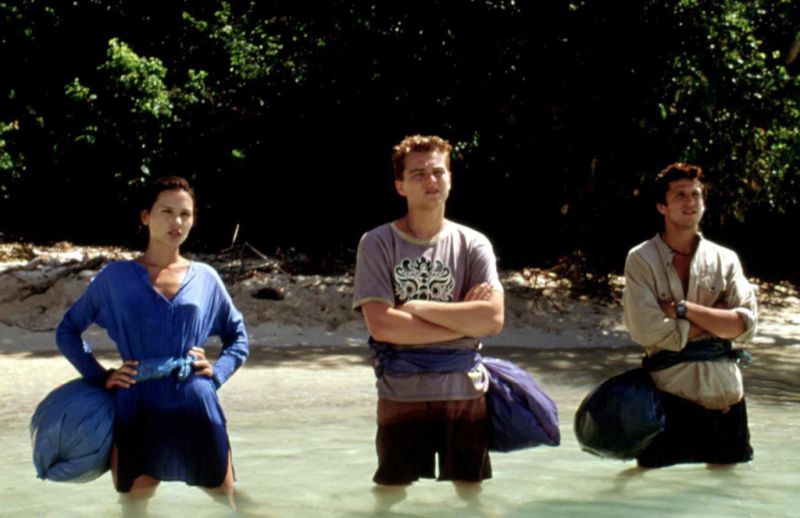
”…I’d make a much better film now. I was rather overawed by the money, and the way the film was set up. It was huge, not really suited to what I’ve learned I’m better at.” This statement, made during an episode of Kermode and Mayo’s film review radio show, tells you all you need know about the film’s central failure. Being his first studio picture, you can see the clash between the vision of an auteur and the Hollywood system. It’s a compromised picture; it has something important to say but its message is held back by forces from within.
This becomes even more apparent when one reads the original source material by Alex Garland, someone who would inspire a few of Boyle’s better films later in his career. The book goes to those dark places the film can only hint at. Both the film and the book are about the death of the utopian dream, but unlike the film, the book doesn’t distract itself with an unnecessary love story, and it refuses to hold back on the necessary darkness that a story like this requires.
A young backpacker by the name of Richard (played by a fresh-faced Leonardo DiCaprio, who, riding on the coattails of “Titanic”, received a $20 million paycheck for this film) is seeking the ultimate adventure, something that transcends the traditional norm.
During his travels in Bangkok, he meets the unhinged Daffy (played by an excellent Robert Carlyle, who, despite his limited screen time, leaves an indelible impression), who speaks about an isolated island, fresh from the touristy conventions that infects most of the world’s most beautiful places. When Daffy commits suicide, he leaves a map of this island to Richard, who decides to search for this paradise. He takes two fellow backpackers with him, only to discover that paradise is lost wherever human nature roams.
On a surface level, there’s much to enjoy from the film: the scenes are lush for the eyes and the soundtrack is both hauntingly ethereal and upbeat, perfectly commemorating the main character’s search for ultimate escapism. Yet it could have been so much more, if it dared to portray the abyss of the novel.
The madness of its main character during the third act, aided by a memorable hallucination sequence (in which Carlyle makes another appearance), gives us a taste of Boyle’s genius that should have pervaded the rest of the picture.
While DiCaprio is fine in the role, the original choice of Ewan McGregor would have been far more interesting. His initial casting and dismissal due to studio pressure also started a falling out with McGregor and Boyle, which lasted for years until they made up in 2015, which would eventually spark the return of Renton and his gang in “T2: Trainspotting”.
10. Millions (2004)
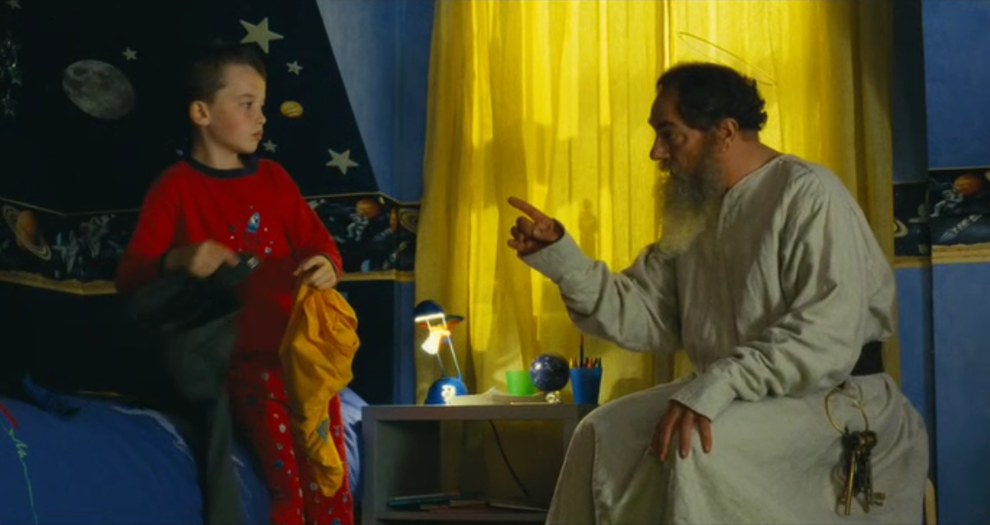
In order to survive in this cruel world, we must lose our innocence. Holden Caulfield, the neurotic hero of “Catcher in the Rye”, dreamed of preserving the innocence of children by keeping them playing in this imaginary field of rye at the edge of a cliff. He would catch them before they would fall into adulthood. But there are no Catchers in the Rye. Not in this world.
Every parent comes to realize that one day you wake up and that childlike glare is gone. Your boy has become an adult and he’s leaving the house, venturing into the grown-up world.
This film is about the innocence of children. There’s child’s play and there’s men behaving badly. It’s about kids confronting the messy world of adults; it’s about two boys in a Catholic working class household (similar to Boyle’s own upbringing) who have lost their mother and now live with their hard-working and no-nonsense father (James Nesbit). Damian (a wonderful Alex Etel) is an usual boy, a dreamer with an obsession with Catholic saints. His older brother Anthony (an equally great Lewis McGibbon) is on the verge of puberty, beginning to show an interest in girls.
When a bag of money suddenly crashes on Damian’s safe space (made of cardboard), the two brothers begin spreading it around. Naturally, there’s a very bad man looking for that money.
Damian’s fascination with Catholic saints makes him give the abundance of the money to the poor. These saints appear to him and converse with him, but the viewer doesn’t know whether they originate from his imagination or from his disturbed yet sweet mind, or even perhaps from the celestial realm. In the magical reality of this film, it could very well be divine intervention.
The innocence of children, their naivety, and blissful unawareness are often exploited for entertainment purposes (anyone remember that dreadful Cosby kids show?). Yet, few filmmakers manage to portray children honestly. More often than not, they portray kids like how adults want them to act. They don’t really act like children.
This is where Danny Boyle’s “Millions” comes in. For all its faults, it has that one essential thing right: the children in this film feel real. Even with Damian’s sweetness on display – which will certainly warm your heart – he does feel like a child. The goofiness, the selfishness, the sweetness, the wonderful naivete are in display. Boyle cares about the character, not just about making him adorable. The director would prove his knack with children again in “Slumdog Millionaire”.
This is Boyle’s only PG-13 film, filled with sugary coated magical realism, which manages to just shy away from cheesiness. It’s an endearing film and deserves to be seen as another example of Boyle’s incredible talent in telling differentiating tales.
9. Trance (2013)
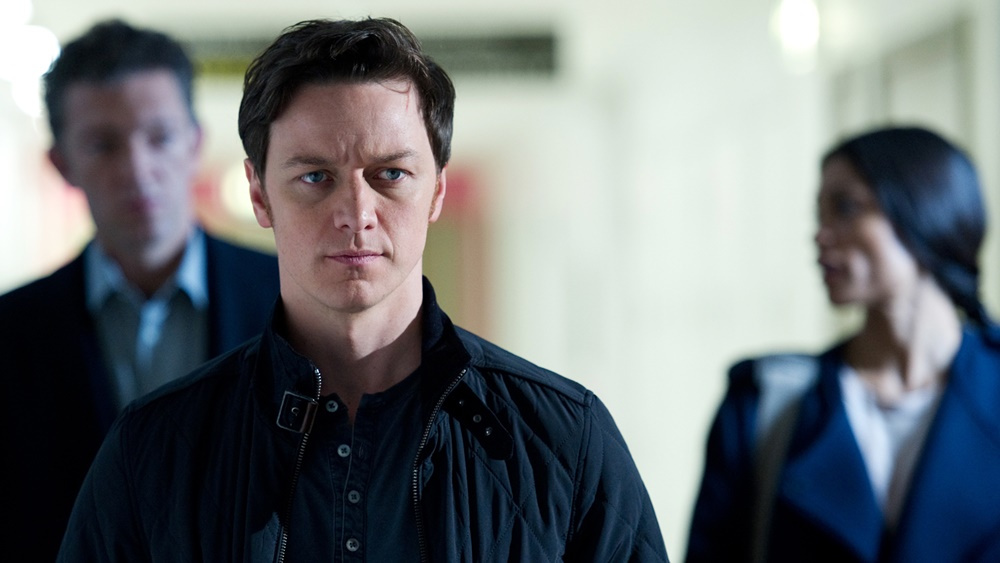
This is a typical example of a film that couldn’t have worked as well as it did without its great director. Without Danny Boyle, it could have been a ridiculously convoluted mess. A forgettable, if entertaining, crime thriller with an interesting twist which would collapse once you use logic to explain it. Thanks to Boyle, we simply don’t care about how nonsensical it is because of the way he tells his story. He’s going all out in this one – and having lots of fun in the process.
Having directed this film after his exhausting work on the Opening Ceremony of the 2012 London Olympics, it’s obvious that Boyle wanted to give himself a break. One could best describe this film like a Danny Boyle rendition of a sleazy Brian De Palma film.
Simon (James McAvoy, who’s always at his best when he’s allowed to lose his mind on screen) is an art auctioneer who successfully manages to protect a painting from being a stolen by a gang of thieves led by Franck (Vincent Cassel). Unfortunately, this confrontation led to Franck hitting Simon on the head with a shotgun, giving him amnesia.
Franck and his gang find Simon and torture him in order to find the illustrious painting. Since this leads absolutely nowhere, they force him to see a hypnotherapist (played by Rosario Dawson in full femme fatale mode), hoping she can make him remember where he left the painting. As the truth slowly comes out, it turns out that things are far more complicated than anyone could have predicted.
It’s by all accounts nothing more than a genre film. Perhaps it’s style over substance, but when the style is this mesmerizing, there’s no reason to complain.
8. Slumdog Millionaire (2008)
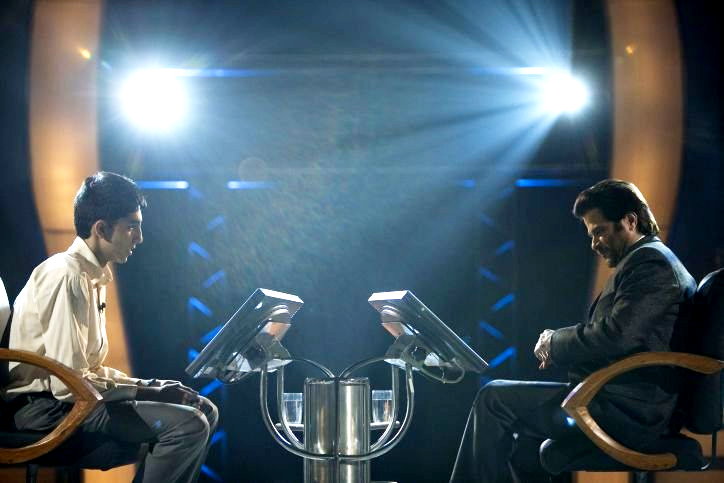
“Slumdog Millionaire” might seem to be a film tailor-made for awards season. It’s a crowd-pleaser through and through; it has a love story between two likable and attractive actors, it celebrates a foreign culture, there are clear-cut villains, there’s depiction of struggle and poverty, and it’s about an underdog overcoming inconceivable odds. The inevitable happy ending will undoubtedly sooth some of the darkness of this world, if only temporary. Perhaps you could call this his ‘Spielbergian’ moment.
He’s not the only director to venture into rather more conventional fare while being better known for darker stuff. Wes Craven had “Music of the Heart”, David Fincher had “The Curious Case of Benjamin Button”, and Boyle has “Slumdog Millionaire”.
This doesn’t mean that one should disregard this film. It is still a Danny Boyle film, first and foremost. The cinematography, now aided by the exotic scenery of India, is once again outstanding. The soundtrack might be one of the best from any his films – and that’s saying something. The film is filled with the stylistic flourishes Boyle is known for and that makes it impossible for the viewer to not be engaged with what is happening.
During an episode of the Indian version of “Who Wants to Be a Millionaire”, a poor, soft-spoken young man named Jamal (Dev Patel) is the winner of the penultimate 20 million rupee question and is suspected of cheating. In order to find out how he could have known all the correct answers, he is tortured.
When this does not give his torturers a satisfactory answer, the main chief inspector (Irrfan Khan) begins to interrogate him. Jamal starts to recount his life story to the skeptical chief inspector, beginning with his childhood and ending with his reason for being on the show to begin with – to reunite with the love of his life. The strongest scenes are the ones involving Jamal’s childhood and his friendship with Salim and his romantic affections for Latika.
It’s this story that is the most compelling and most heart-wrenching as we see glimpses of the dark underbelly of India, filled with theft, mutilation and child labor. In retrospect, the adult scenes are coated with a fairytale gloss that gives the main three characters a satisfying end, yet it doesn’t undermine the gritty realism previously witnessed.
The film is essentially a modern fable, a sort of modern version of Hector Mallot’s “Nobody’s Boy”. The characters are not particularly complex, apart from Salim, whose fall and eventual redemption makes him the most compelling character at the end of the film. Despite some of the grittiness, it never goes far enough, nor does it really challenge the audience. It is, therefore, not as memorable as some of Boyle’s other work.
However, in the end, it’s hard to deny its charm. We should also mention the good that came out of this film, since Boyle started a trust fund for the three child actors who played the young Jamal, Salim and Latika. Coming from their background, it will certainly do them well in the future.
7. 127 Hours (2010)
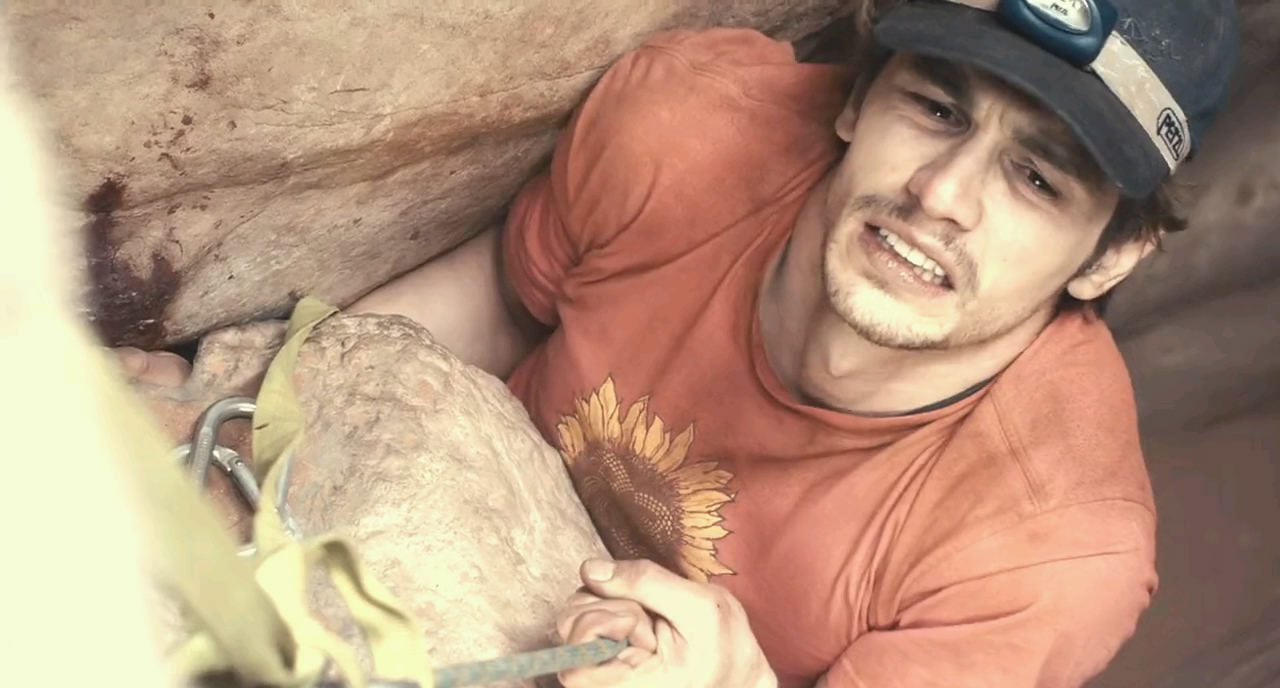
“This is a feature film that proves the cliché that no man is an island… And that even in- especially in- the loneliest place in the world, it begins and ends with people.”
Boyle might have made one of the best survival films, but apart from many different examples in its genre, it doesn’t include any explosions or even action set pieces. It’s simply about a man being stuck in a place with seemingly no way out. There’s no force of nature trying to annihilate him; it’s a random event caused by his recklessness which could possibly end his life. The real battle is internal, trying to keep one’s sanity in the face of hopelessness, never giving up despite having all the reasons to do so.
James Franco gives a career-best performance as Aron Ralston, a backpacker who finds himself stuck inside a slot canyon, unable to escape due to a boulder having fallen on his right arm. He records many of his personal thoughts with his video diary, slipping into hallucinations due to malnutrition, as he contemplates his mortality, his life, and his relationships with the people he loves.
Franco transcends the trappings of his traditional persona and captures the character of Ralston perfectly. Seeing as this is based on a true story, the real Aron Ralston aided Boyle and Franco in the making of this film. Ralston even showed them some of the unseen video diary footage, which had only been seen by close family and friends.
Boyle’s style, usage of intimate video diaries, colorful scenery, and per usual, a hauntingly beautiful soundtrack makes this film a tour de force experience, as close as any outsider can get to Ralston’s experience. It’s a film that is mostly set inside a confined space, but it gives Boyle room to do what he is so good at doing – portraying the psyche of his characters, and the lives of their minds.
It’s hard not to be moved by the journey of Aron Ralston and the larger picture of his eventual survival. It makes you want to go out and travel this beautiful world despite the horrors that might come your path.